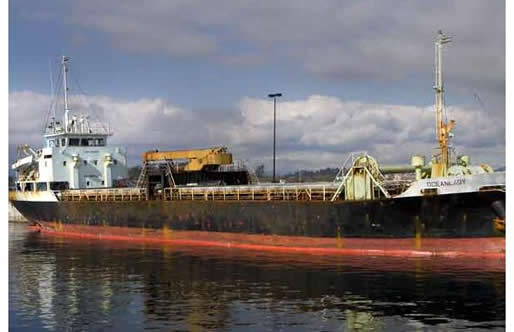Ilankai Tamil Sangam28th Year on the Web Association of Tamils of Sri Lanka in the USA |
|||
 Home Home Archives Archives |
Mystery Ships and Risky Boat PeopleTamil Refugee Migration in the Newsprint Media by Ashley Bradimore and Harald Bauder, Ryerson University, Vancouver, Canada, February 2, 2011
Research Question: On October 17, 2009, seventy-six Tamil refugees arrived off the coast of Victoria, British Columbia. This study examines how the Canadian newsprint media portrayed this event and in which policy context this coverage occurred Importance: The spectacle which surrounded the Tamil boat arrival had created the necessary discursive environment and sense of urgency to push Bill-C11 through parliament relatively quickly. This spectacle fostered a sense of anxiety around a multitude of issues, including crime, terrorism, and national security, in connection to the refugee system that was supposedly failing. As in previous cases, a small group of “boat people” became a symbolic catalyst for political action and legislative reform Research Findings: Our results show that there was an overall negative representation of the Tamil refugees as the press emphasized issues of criminality and terrorism, and constructed the refugees as risk. The discussion established security—rather than human rights—as a focal point and portrayed the immigration system as both “failing” and “abused” by “bogus claimants.” The initial reports published by the press tend to be vital in shaping media and political narratives relating to events and the people involved. In this case, inaccurate media statements and poor fact-checking seemed to have lasting repercussions, and mistakes remained embedded in narratives used by government officials to push for policy changes. Implications: Important policy recommendations emerge from our analysis and the most recent events. The media are inseparable from the political process. If media and political debates rely mostly on each other for information and knowledge, they then establish a closed discursive circle that silences dissent and stifles oppositional intervention. This is particularly problematic when discourses are based on information and knowledge that is obviously biased, selectively sequenced, and prioritised, and when important facts are omitted and critical voices are silenced. Full Report can be viewed at
| ||
